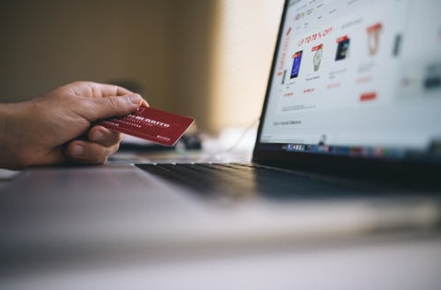Identity Theft & Other Account Risks
 Identity theft is a real issue. Your financial life can be flipped upside down if someone steals your identity and then borrows money as if they are you or withdraws from your bank or investment accounts. If this occurs debt collectors might came after you for money you didn’t borrow, or you might be out of significant sums of money if someone empties your bank account.
Identity theft is a real issue. Your financial life can be flipped upside down if someone steals your identity and then borrows money as if they are you or withdraws from your bank or investment accounts. If this occurs debt collectors might came after you for money you didn’t borrow, or you might be out of significant sums of money if someone empties your bank account.
There are a number of things you can do to protect your financial life from these types of risks.
- Freeze your credit with each of the three main credit bureaus. This will prevent someone from borrowing money as if they are you. Previously there was a fee to do this, but now it is free. The three main credit bureaus are Experian, Equifax and Transunion. To be secure you need to freeze your credit with all three. Although this protects you from identity theft, it will create some additional work for you when you do need to borrow again (you’ll need to temporarily unfreeze your credit or provide a temporary code that you can provide to give someone temporary access). For example, I recently applied for a credit card. They were unable to verify my credit score because it was frozen. I then asked them for the bureau they use. Once they gave me the bureau name (one of the three listed above), I was able to obtain and provide a temporary code (good for two weeks) to give them access to my credit file
- Set up text notification with all of your credit cards so that you get a text whenever the card is used. This is easy to do. You can go right on the credit card website and set that up under managing your card. This will allow you to report fraud right away if it occurs. For credit cards you are only liable up to $50 if there is fraud and you don’t report it.
- Check your bank and investment accounts on a weekly basis. You need to monitor your accounts to make sure there is no unusual activity. Also call your bank and investment customer service teams and ask what procedures they have to prevent theft and what you can do to monitor your accounts. Some people use products such as Mint.com and PersonalCapital.com to track their spending or investments. These tools give you instant access to our your balances.
- If you use a debit card keep as little in the bank account linked to the card as possible. If you have excess funds, move that to another account such as a savings account. That way, if you debit card is compromised, you will mitigate the amount that could be stolen. Also be sure to not have overdraft protection on your account, as you don’t want someone to draw more that you have available. In addition, overdraft protection is an expensive service that you don’t need.
- Only do your banking and investing from a separate computer that you do not use for anything else. Do not check your email with this computer and don’t do any web surfing. Just use the computer for banking and investing transactions. This will minimize the risk of getting malware or viruses that can steal your passwords to your bank or investment accounts (normally you get viruses from emails and web surfing). Some people use an inexpensive device such as a Chromebook just for financial transactions.
- Keep your internet website passwords in a safe place that can’t be accessed or compromised. I am old school and keep the passwords written down in a Rolodex so that it can’t be stolen electronically. Some people use Dashlane or LastPass password services to help them manage their passwords. Regardless of how you store them, take precautions to protect that Also keep in mind that it is more effective to use long phrases for your passwords rather than just one word.
- Get your credit reports for free once a year from each of the three credit bureaus at AnnualCreditReport.com. You can review the reports for both unusual activity or errors that you can dispute and get cleared up. Some people will pull one credit bureau file every four months so that they are all covered once per year (and they are seeing a credit report every four months).
- Get a basic shredder for home use and shred any documents that have your name and address or any statement that has account numbers or sensitive information on it. You never know where your paper garbage is going to end up so this is just another precaution.
- Only use one credit card for all of your online / web purchases. Use different cards for your monthly recurring charges and your in-person purchases. Many issues happen with internet purchases. If your online card is compromised and you need a new card, you will save the hassle of not having to move your recurring charges to a new card.
- Avoid getting a large refund for your income tax return. Ideally you should be close to right on or owe a small amount. If someone steals your identity and files a return as if they are you to get a fictitious refund, it will take you quite a while to clean things up and get your refund. Also if possible file your tax return as early as you can to beat a fraudster who is trying to file a fraudulent return as if you before you file your return.
- Consider a VPN as an option when you get on the internet. A VPN is a Virtual Private Network which means your internet connection is protected from others seeing or intercepting your information. One of the well known companies that offers this service is Nord VPN. Also, if you are at a hotel or any public place and need to do anything confidential such as a banking transaction, at least turn off your wifi and go direct with your cell service. Free public wifi is dangerous because others can easily tap into your data.
You can purchase an RFID blocking wallet if you are concerned about scammers capturing your credit card numbers remotely while you are in public spaces. These types of wallets can also protect your debit card, enhanced driver’s license, transit card, hotel room key, passport card, etc. Get an RFID Blocking Wallet

